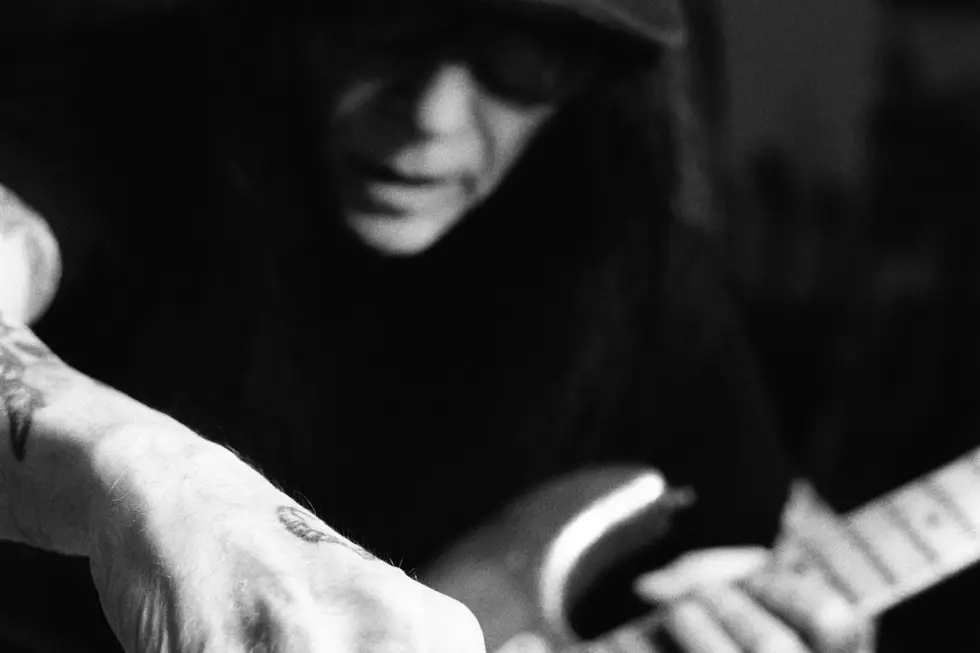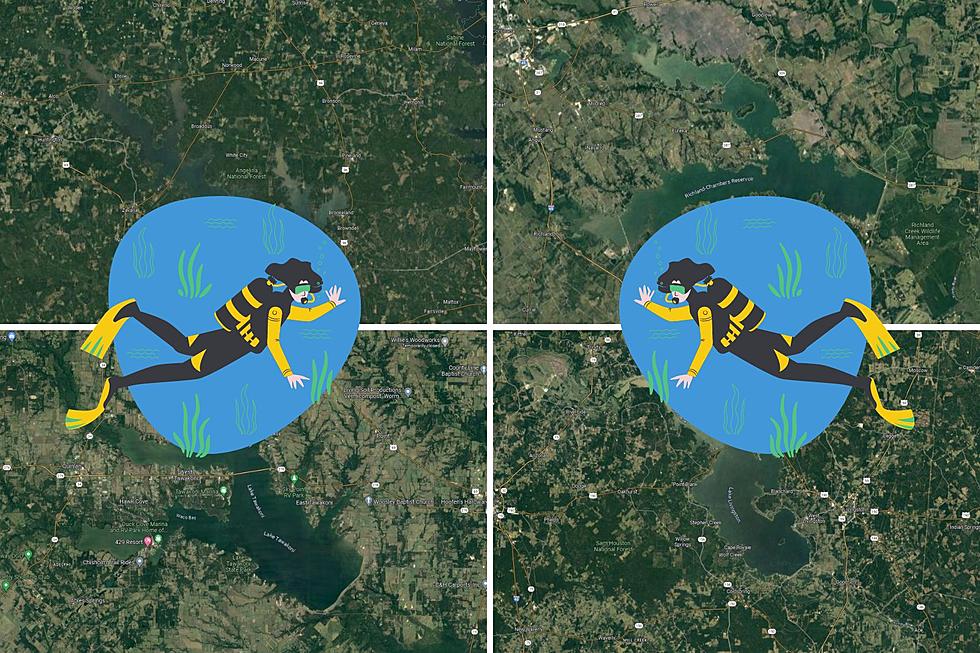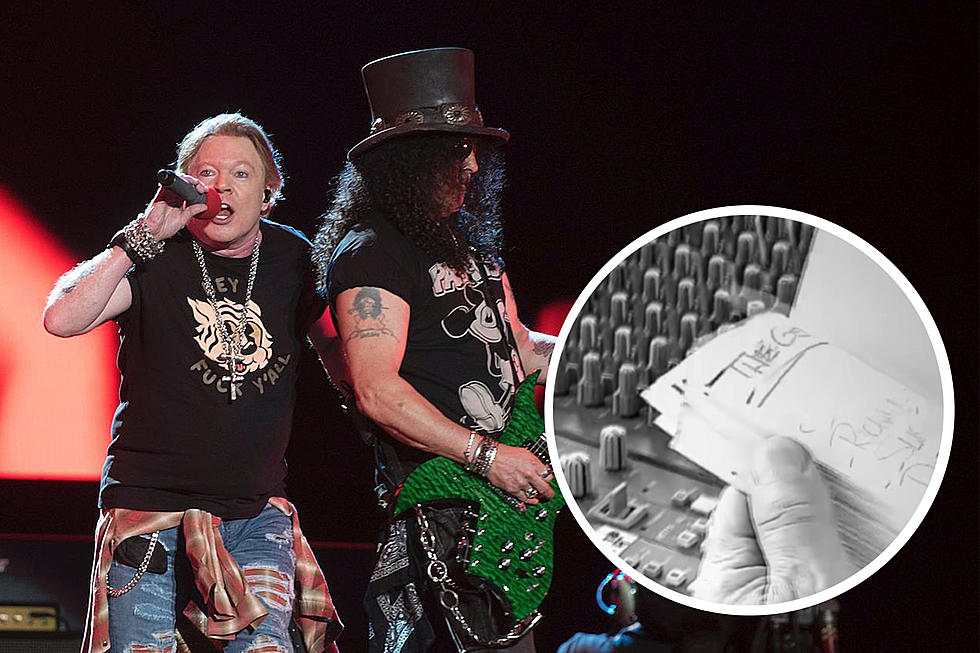
Mick Mars Plans New Music: ‘I Do Have Another Album in the Fire’
Mick Mars' debut solo album, The Other Side of Mars, arrived on Feb. 23 after being in the works for years. But it appears that fans won't have to wait nearly as long to hear the next chapter from the former Motley Crue guitarist.
"I have a ton of ideas. [There’s] years and years of stuff,” he told UCR in late December. He expanded on that thought during a new interview with Ultimate Classic Rock Nights' program host Matt Wardlaw. "I know that I have the right formula and the right people," he explained, adding that the process should move faster this time around.
Still, as he details in the below conversation, he wants to give The Other Side of Mars "a little bit of room to breathe and grow," predicting that the follow-up won't arrive until 2025 at the earliest.
Checking in briefly via phone from his Nashville home, the guitar legend shares his thoughts on the initial reception to The Other Side of Mars and where his head is at when it comes to the new music he wants to record. He also looks back at a couple of key Motley milestones, including the 30th anniversary of Motley Crue, the band's lone album with vocalist John Corabi.
It's been about a month since The Other Side of Mars was released. You must feel pretty good about how it's been received so far.
I think both of my eyeballs rolled around on the floor for a while. I was pretty knocked out by it. [Laughs]
What's been the most surprising thing about the reception?
You know it’s my record company, right?
Absolutely.
I only wanted to put out maybe a couple thousand copies, but it blew up and I went, whoa! Because I didn’t know how it would do or anything, just being by myself. But as I say, I was floored when it came to how much it blew up. Floored. I’m beyond happy. I’m at a loss, because I don’t even have the correct words to say.
READ MORE: Listen to Mick Mars' 'Loyal to the Lie'
You're already looking at doing another album, right?
Oh yeah. I’ve already got some solid ideas too. So yeah, of course. I want to do it until I can’t, you know?
When we first spoke last year, you told me there are still moments of "mean old Mick" on this album. I can hear that on "Ain't Going Back," which I hadn't heard when we talked.
Oh yeah! That’s a mean one, huh?
That’s mean old Mick, man!
[Laughs] That’s mean old Mick, that’s right. You know, sometimes I just sit down and start playing around with different things. I’ll hear something in what I did. So I’ll take it out and see where I can take that particular part. That’s how I actually work. I just sit down and whatever comes out of my guitar, from my brain to my hands, that’s what I look at. There’s different sounds, different toys, you know, it’s just playing around and searching for stuff.
You’ve always done a lot of that.
Oh, always, yes. Maybe I’m weird, but that’s just the way I work.
Listen to Mick Mars' 'Ain't Going Back'
“Killing Breed” has a grunge feel to the guitar tone in spots. How much were you into grunge at the time?
Hardly none. [Laughs] Mostly, because I was with Motley, touring and doing all of this stuff. It’s really hard to discover, hear or listen to the radio. You get lost in the tour. It’s lost time, I guess. But not really any of it. I’ll take that as a compliment though, my friend.
Oh, for sure. As you say, Motley was making music in that time period. We’re at the 30-year mark for the Motley Crue album with John Corabi. Going back to that moment when you were working on the album, what did that feel like?
It felt to me like Motley was going in a different, more musical kind of direction. I mean, I really liked it. I had a lot of fun playing on that album and writing the music for it, all of that. It was like when you first meet your new girlfriend, the thrill and the energy and all of that, it was all there. I thought the songs were all very strong. That’s kind of where I was coming from then.
As a creative person and guitar player, it seems like that’s a record that really would have pushed you. I think there was a lot of that happening within Motley with that album.
Oh yeah. But, you know, I understand why fans really didn’t like it. Because it wasn’t the way they were used to hearing the band with Vince Neil. Probably, if we would have gone with a ghost name [and not called it Motley Crue], it would have probably done really well. But staying with the name, people were like, “That’s not Motley Crue!” But there are a lot of people that really like the album too.
That’s a record that a lot of people love, absolutely.
Yeah, yeah. There’s a lot of people still discovering it as well. It’s all good. I’m very proud of that record.
READ MORE: When Motley Crue Struggled to Move Ahead With a New Singer
Dr. Feelgood also turns 35 later this year. Your guitar sounds so huge on the title track. How did that song take shape?
You know, I’ve always been about tone, of course. But I wrote that lick on a little eight-track studio that I had in my condominium. Nikki [Sixx] came over for a second and heard it — “He’s the one they call Dr. Feelgood” — so we started playing around at rehearsal with it. I had the whole song. We didn’t have the lyrics, of course, but the song was there. But my guitar tone is important to me. I didn’t want it to sound like a transistor radio. It needed to be big. Big and mean and in your face. [Laughs]
Listen to Motley Crue's 'Dr. Feelgood'
“Kickstart My Heart” has prominent use of the talk box. How did you get into that?
That was from the Joe Walsh days. I used to play “Rocky Mountain Way.” That’s the first song that I used with a talk box. In a cover band! [Laughs]. But it’s from him. Listen to Joe.
You were working on The Other Side of Mars for a long time, so it will be exciting to see where you go with the next album.
I know that I have the right formula and the right people. So it should go a little faster than [The Other Side of Mars]. I'm thinking [it will be out] maybe the beginning of next year. You know, let's give this album a little bit of room to breathe and grow. But I do have another album in the fire. It's coming. There's four really killer ideas that I have. I listen to them and I go, "Whoa, this is really cool."
More From KKTX FM




![[WATCH] Is It Really Hot Enough To Cook Chicken On The Ground In El Paso?](http://townsquare.media/site/157/files/2023/07/attachment-Screenshot_931.jpg?w=980&q=75)





